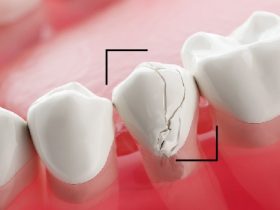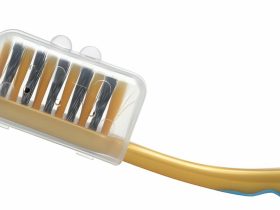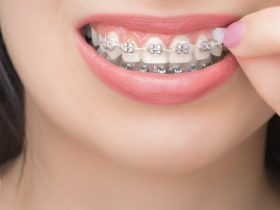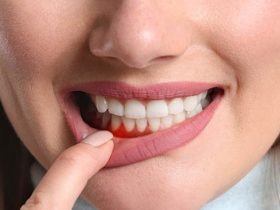
Unveiling : the Best Toothpaste for Sensitive Teeth
Understanding tooth sensitivity
Tooth sensitivity can be a real nuisance, causing discomfort and pain when eating or drinking hot or cold foods. If you’re tired of cringing every time you take a bite of ice cream or sip on a hot cup of coffee, it’s time to get to the bottom of your tooth sensitivity. Understanding the root cause of this issue is the first step towards finding a solution.
Tooth sensitivity occurs when the protective layer of enamel on your teeth wears down, exposing the sensitive dentin underneath. This can happen due to various reasons, such as aggressive brushing, gum recession, tooth decay, or even teeth grinding. Identifying the cause of your tooth sensitivity will help you determine the best course of action to alleviate the problem.
Causes of tooth sensitivity

There are several factors that can contribute to tooth sensitivity. One of the most common causes is enamel erosion. This can occur due to poor oral hygiene, acidic foods and drinks, or even acid reflux. Additionally, gum recession, which exposes the roots of the teeth, can also lead to sensitivity. Other factors include tooth decay, cracked teeth, and teeth grinding or clenching.
It’s important to note that tooth sensitivity can vary from person to person. Some individuals may experience mild discomfort, while others may find it unbearable. Regardless of the severity, it is crucial to address the issue as soon as possible to prevent further damage to your teeth and gums.
Choose Right Toothpaste
Finding the right toothpaste for sensitive teeth is key to effectively managing and reducing tooth sensitivity. Regular toothpaste may not provide the necessary protection and relief for those with sensitive teeth. The right toothpaste will have specific ingredients that help to alleviate the discomfort associated with tooth sensitivity.
Sensitive toothpaste is specially formulated to target the root cause of tooth sensitivity. It contains desensitizing agents that help to block the nerve signals in the teeth, reducing the pain and discomfort. Using a toothpaste specifically designed for sensitive teeth can make a significant difference in your oral health and overall quality of life.
Ingredients for sensitive toothpaste.

When selecting toothpaste for sensitive teeth, focus on key ingredients like potassium nitrate, fluoride, arginine, calcium phosphate, and stannous fluoride. These components are crucial for alleviating sensitivity, strengthening enamel, and improving overall oral health.
Look for toothpaste containing potassium nitrate and fluoride, which provide immediate relief for sensitive teeth while also fortifying enamel and reducing the risk of decay. Another option is toothpaste with potassium nitrate and arginine, offering long-lasting relief and protection for dentin. Additionally, consider toothpaste formulated with calcium phosphate and stannous fluoride, as these ingredients effectively reduce tooth sensitivity while also promoting enamel repair and preventing decay.
In summary, prioritize toothpaste that contains these key ingredients to effectively manage tooth sensitivity and maintain good oral health. By choosing the right toothpaste, you can alleviate discomfort, strengthen your teeth, and enjoy a healthier smile.
Sensitive toothpaste usage tips.
To get the most out of your toothpaste for sensitive teeth, it’s important to use it correctly. First and foremost, make sure to brush your teeth at least twice a day, using a soft-bristled toothbrush. Avoid brushing too aggressively, as this can further damage the enamel and increase sensitivity.
When brushing, apply a pea-sized amount of toothpaste to your toothbrush and gently brush in circular motions for two minutes. Pay close attention to the areas where you experience the most sensitivity. Rinse thoroughly after brushing, and avoid eating or drinking anything for at least 30 minutes to allow the toothpaste to take effect.
It’s also important to maintain good oral hygiene habits, such as flossing daily and visiting your dentist regularly. These practices, combined with the use of a toothpaste for sensitive teeth, will help to effectively manage and reduce tooth sensitivity.
Manage tooth sensitivity effectively.
While using the best toothpaste for sensitive teeth is crucial, there are additional steps you can take to prevent and manage tooth sensitivity. One of the most important things you can do is to avoid acidic foods and drinks, as they can contribute to enamel erosion and tooth sensitivity.
Additionally, using a soft-bristled toothbrush and brushing gently can help to prevent further damage to the enamel. If you grind or clench your teeth, wearing a nightguard can help to protect your teeth from further sensitivity.
Maintaining a healthy diet and avoiding sugary foods and drinks can also contribute to overall oral health and reduce the risk of tooth sensitivity. Lastly, regular dental check-ups are essential for identifying and addressing any underlying dental issues that may be causing tooth sensitivity.
Conclusion
Tooth sensitivity can be a daily struggle, but it doesn’t have to be. By understanding the causes of tooth sensitivity and using the right toothpaste, you can finally say goodbye to the discomfort and pain associated with sensitive teeth
.When choosing a best toothpaste for sensitive teeth, look for key ingredients like potassium nitrate, fluoride, arginine, calcium phosphate, and stannous fluoride. These ingredients work together to provide relief, repair the enamel, and protect against tooth decay.
Remember to use your best toothpaste for sensitive teeth correctly, brushing gently for two minutes at least twice a day. Combine this with good oral hygiene habits, a healthy diet, and regular dental check-ups, and you’ll be well on your way to managing and preventing tooth sensitivity for good.
So, why suffer any longer? Take control of your oral health and invest in the best toothpaste for sensitive teeth today. Your smile will thank you!
Frequently Asked Questions
Tooth sensitivity can be caused by various factors, including enamel erosion, gum recession, tooth decay, cracked teeth, and teeth grinding or clenching.
The best toothpaste for sensitive teeth typically contains desensitizing agents like potassium nitrate, fluoride, arginine, calcium phosphate, and stannous fluoride. These ingredients work to block nerve signals in the teeth, repair enamel, and protect against tooth decay, ultimately reducing sensitivity.
While the best toothpaste for sensitive teeth can significantly reduce tooth sensitivity and provide relief, it may not completely eliminate the issue for everyone. However, consistent use of the right toothpaste, along with proper oral hygiene habits, can help manage and prevent tooth sensitivity effectively.
Yes, there are several additional steps you can take to prevent tooth sensitivity, including avoiding acidic foods and drinks, using a soft-bristled toothbrush, wearing a nightguard if you grind or clench your teeth, maintaining a healthy diet, and scheduling regular dental check-ups.
It’s recommended to use toothpaste for sensitive teeth at least twice a day, brushing gently for two minutes each time. It’s also important to maintain good oral hygiene habits, such as flossing daily and visiting your dentist regularly.












Leave a Reply